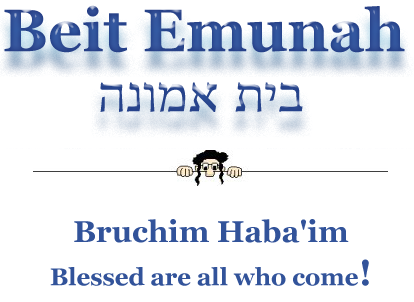
| |||||||||||

This week's parsha is big on Law! Indeed seventy-four of the Torah’s 613 commandments or mitzvot are contained within Parshah Ki Teitzei. But do not be dismayed by all these Laws!
The story of the Jewish people is a simple one: We were slaves in Egypt and HaShem brought us into freedom. How? Aside from the specific biblical narrative, He granted us freedom through His Torah. The Torah is our guide to living meaningful and joyous lives. These Laws give direction to better ourselves, as stated in our sidurim, not to enslave us. Sadly too many see the mitzvot as jailers assigned to keep us bound to man-made rules. Rebbe Nachman however is clear that in terms of living our lives, one mitzvot rises above the rest. He tells us that “It is a paramount obligation to be joyous at all times!” It is through our joy and confidence in HaShem that we bring Him honor! Not through fear of punishment. HaShem is not some cowardly mortal despot demanding that people grovel before Him! G-d forbid! No, He is the author of Life and Joy and Happiness!
Furthermore showbottle tzadikim are not actually tzadikim at all. Those who feign religious piety and devotion to be seen by others as righteous are far from the true meaning of righteousness. Such people are not tzadikim regardless of the number of talmidim they may amass through their charisma.
As we discussed last week, while it is true that all things come ultimately from G-d alone, the positive comes directly from G-d while the negative comes only through the impure vessels we choose for ourselves. The Divine Will of the Beloved is that we should all know abundant JOY and Happiness through clean vessels. The Joy that one can know now is but a foretaste of the inscrutable Joy to be experienced in the World to Come.
Of the dawning of that joyful time Rebeinu gives some insight:
On the evening following Shabbat Teshuvah, 5570 (1809), people were talking about the Messiah and predicting he would come that year.
But Rebbe Nachman disagreed. He said at that time that before the Messiah comes, people will generally not be crying out about faith. He said, “Although there will be a number of tzaddikim then who will be crying out in a great voice about faith as I am today, until they become hoarse, it will not help.”
At that time there will be many false leaders. It is clear that there will not be large groups of people like us today, groups who really want to hear the Word of God. Rather there will be a number of kosher people in the generation but they will be scattered.
“Write this as a remembrance in a scroll” (Exodus 17:18), so that people will be aware in the days to come that someone knew this ahead of time. This will help them strengthen their emunah in HaShem and in His true tzaddikim. (Sichot Haran 126).As we read these and the other Laws in the Torah and Jewish halachah we do well remember that they are means to an end, not the end. They are there to create tzadikim. Do not observe these laws thinking to attain some reward from them of themselves, no. Our sages teach that we should observe the mitzvot because G-d says to, and for no other reason: "Do the Torah for the sake of Torah." Doing Torah for its own sake elevates the consciousness into the realms of supernal JOY in ways doing them for some imagined reward never could because our doing of them would never be flawless. Doing them for their own sake frees one from allowing the Perfect to defeat or deminish the Good.
Such JOY is the natural state of a consciousness that is absorbed in Devekut, Divine Attachment. All who dwell in proximity with the Beloved experience Pure JOY. It is for this reason that JOY is the Greatest Mitzvah of them all. Imperfect joy begets Perfected Joy!
Let's read Rebbe Nachman's wisdom on this at Likutey Moharan Book 2, Lesson 24.
We'll be reading from Saba Odeser's translation in the three volume set, which can be purchased after Shabbat at Beslovbooks.com.

|
|||
| search engine by freefind |